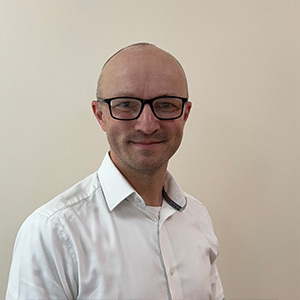Crime, social justice and policing
Keele University has been a centre for research on crime and justice since the 1960s and has established an international reputation for rigorous, innovative and influential research. The Crime, Social Justice and Policing research cluster hosts a highly productive group of researchers whose work is theoretically informed, methodologically innovative, and shapes policy and practice.
Our interdisciplinary approach includes perspectives from criminology, socio-legal studies, policy, theory, public health, community justice, youth justice, social inclusion, and related fields. We have extensive collaborative relationships with national and international partners from the criminal justice, government, health, local authority, policy and third sectors. This supports our excellent track record for research and evaluative projects which enrich academic knowledge as well as having real world impact and practical application.
Group expertise
The range of specialisms within the Criminology group of academic staff is constantly developing. Visit our team page to find out more about each member's specialisms.
Policing
Members of the Criminology team and research cluster are actively engaged in research with, and about, policing, including domestic abuse, violent offending, anti-social behaviour, police/public contact, police use of technology and roads policing. Their work impacts at a local, national and international level.
The Roads Policing Research Group is an interdisciplinary, cross-Faculty group of staff and students who are engaged in research and/or teaching that informs the understanding and delivery of policing roads. Its members include experienced researchers involved in ongoing roads policing projects (including for funders such as the Department for Transport, Home Office, NPCC and local forces), authors on roads policing and road safety publications, colleagues whose work in other areas has a roads policing angle, and PhD students engaged in work around this topic.
The Roads Policing Academic Network, a network of over 170 academics and research-engaged practitioners interested in roads policing, is also led from within the cluster. The network is cross-disciplinary and international and hosts regular events, runs conference panels and shares news, events and publications. For more information, or to join the network, email Dr Helen Wells.
Prison, custody and resettlement
Cluster members have research expertise on imprisonment, prison-to-community pathways, resettlement and offender management with particular reference to marginalised prisoner groups (young prisoners, children, women, the bereaved, older prisoners); gender responsive and community-based service; youth custody; health in the prison and probation, resettling communities.
Safe and secure communities
Members of the cluster have produced influential work in the fields of community justice; everyday insecurity; fear of crime; politics of crime control; police-community relations; governance,
Health, well-being and justice
The cluster members have expertise in mental health; death, loss and bereavement in custody; ageing in prisons and probation; the criminalisation of marginalised groups of children; loneliness, social isolation and well-being.
Justice policy, administration and practice
Members of the cluster have worked on topics including social inequality and criminalisation; lay participation in criminal trials; criminalisation and migration; organisational resilience in the third sector; inter-agency partnerships; addressing barriers to citizens’ participation in justice.
Hatred and prejudice
Members of the cluster have extensive knowledge of race, prejudice and hate crime and have led projects examining Islamophobia and racial prejudice.
For further information please contact:

Dr Stephen H. Jones
Senior Lecturer in Criminology & Sociology
- Chancellor’s Building B 1.019
- s.h.jones1@keele.ac.uk

Dr Helen Wells
Senior Lecturer in Criminology
Expert in Mobile phone use while driving, roads policing.
- CBB1.017
- +44 (0) 1782 733748
- h.m.wells@keele.ac.uk


